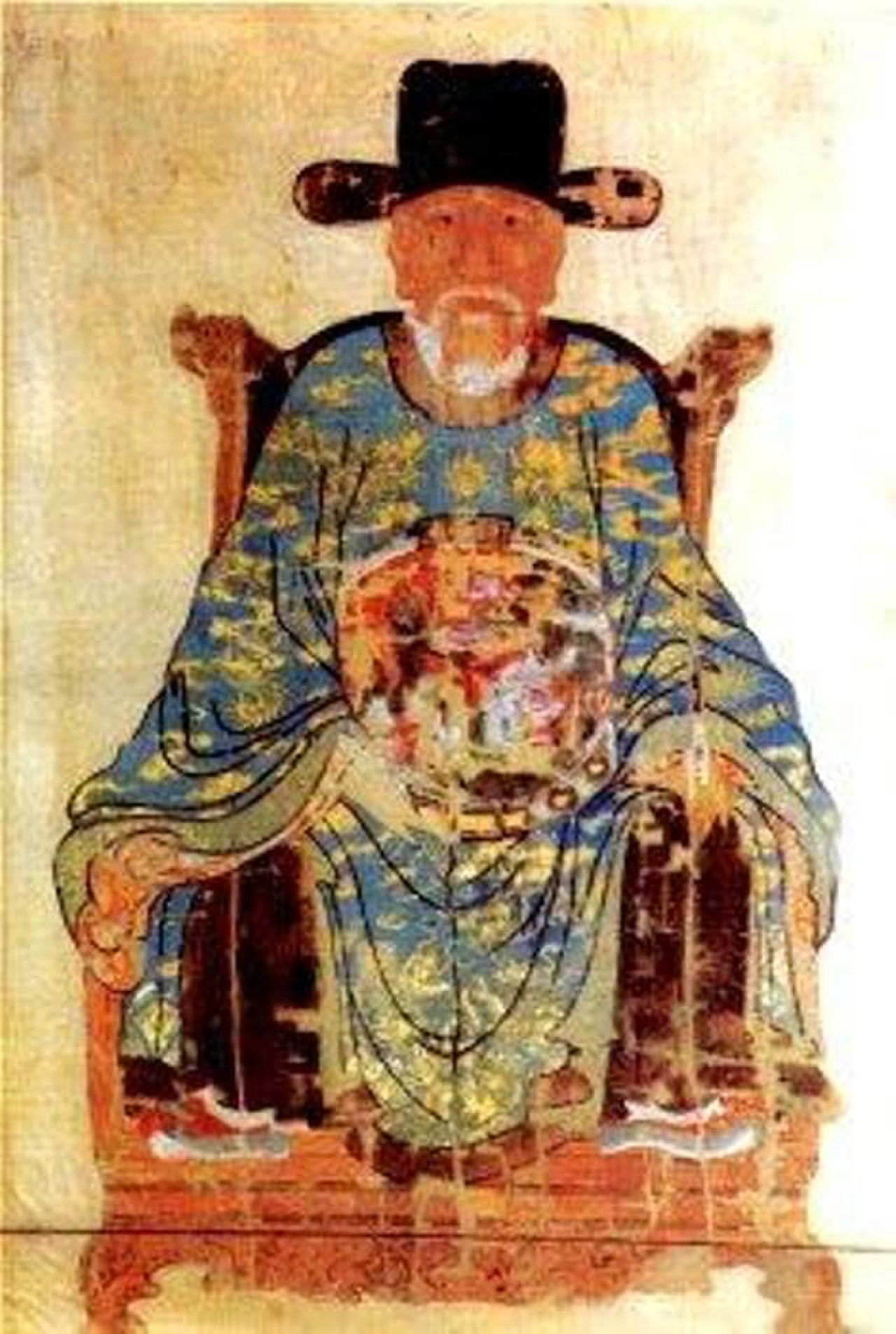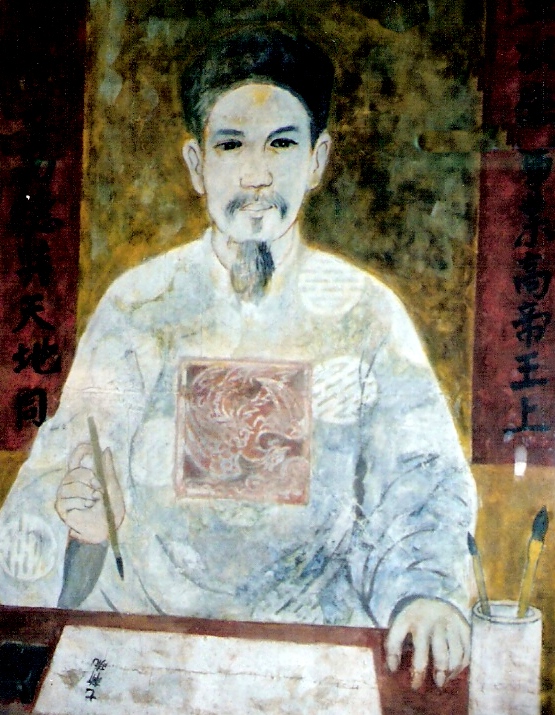Vietnamese philosophy on:
[Wikipedia]
[Google]
[Amazon]
 Vietnamese philosophy includes both traditional
Vietnamese philosophy includes both traditional
 Confucianism entered Vietnam and was later reinforced in the four '' Bắc thuộc'' periods of Chinese domination, beginning with the
Confucianism entered Vietnam and was later reinforced in the four '' Bắc thuộc'' periods of Chinese domination, beginning with the
What we see, why we worry, why we hope: Vietnam going forward.
Boise, ID: Boise State University CCI Press, October 2013. .
 Vietnamese philosophy includes both traditional
Vietnamese philosophy includes both traditional Confucian philosophy
Confucianism, also known as Ruism or Ru classicism, is a system of thought and behavior originating in ancient China. Variously described as tradition, a philosophy, a religion, a humanistic or rationalistic religion, a way of governing, or ...
, Vietnamese local religious traditions, and later philosophy introducing French, Marxist, Catholic
The Catholic Church, also known as the Roman Catholic Church, is the largest Christian church, with 1.3 billion baptized Catholics worldwide . It is among the world's oldest and largest international institutions, and has played a ...
and other influences.
Confucianism in Vietnam
 Confucianism entered Vietnam and was later reinforced in the four '' Bắc thuộc'' periods of Chinese domination, beginning with the
Confucianism entered Vietnam and was later reinforced in the four '' Bắc thuộc'' periods of Chinese domination, beginning with the first Chinese domination of Vietnam
The First Era of Northern Domination refers to the period of Vietnamese history during which present-day northern Vietnam was under the rule of the Han dynasty and the Xin dynasty. It is considered the first of four periods of Vietnam under Chine ...
from 111 BCE. This was also the beginning of Taoism in Vietnam and Buddhism in Vietnam. Confucianism was reinforced in government by the Confucian court examination system in Vietnam, as well as the way family raised and taught children toward filial piety, through absolute obedience.Napier, Nancy K.; Vuong, Quan HoangWhat we see, why we worry, why we hope: Vietnam going forward.
Boise, ID: Boise State University CCI Press, October 2013. .
Nationalism in Vietnam
Communism in Vietnam
Socialism in Vietnam
Ho Chi Minh Thought
Study of Vietnamese philosophy
Most research on Vietnamese philosophy is conducted by modern Vietnamese scholars. The traditional Vietnamese philosophy has been described by one biographer of Ho Chi Minh (Brocheux, 2007) as a "perennial Sino-Vietnamese philosophy" blending different strands of Confucianism withBuddhism
Buddhism ( , ), also known as Buddha Dharma and Dharmavinaya (), is an Indian religions, Indian religion or Indian philosophy#Buddhist philosophy, philosophical tradition based on Pre-sectarian Buddhism, teachings attributed to the Buddha. ...
and Taoism
Taoism (, ) or Daoism () refers to either a school of philosophical thought (道家; ''daojia'') or to a religion (道教; ''daojiao''), both of which share ideas and concepts of Chinese origin and emphasize living in harmony with the '' Ta ...
. Some researchers have found the empirical evidence of this "blending" and defined the socio-cultural phenomenon as "cultural additivity". Another, Catholic, writer (Vu, 1966) has analysed Vietnamese philosophy as constituted of ''tam tài'' ("three body" Heaven, Man, Earth) philosophy, yin-yang
Yin and yang ( and ) is a Chinese philosophical concept that describes opposite but interconnected forces. In Chinese cosmology, the universe creates itself out of a primary chaos of material energy, organized into the cycles of yin and ya ...
metaphysics
Metaphysics is the branch of philosophy that studies the fundamental nature of reality, the first principles of being, identity and change, space and time, causality, necessity, and possibility. It includes questions about the nature of conscio ...
, and agricultural philosophy. Tran Van Doan, professor of philosophy at National Taiwan University (1996) considers that Vietnamese philosophy is humanistic but not anthropocentric
Anthropocentrism (; ) is the belief that human beings are the central or most important entity in the universe. The term can be used interchangeably with humanocentrism, and some refer to the concept as human supremacy or human exceptionalism. ...
.Fumitaka Matsuoka, Eleazar S. Fernandez, ''Realizing the America of Our Hearts: Theological Voices of Asian Americans'', St. Louis, Mo: Chalice Press 2003, , page 178: "Another important contributor to the retrieval and elaboration of Vietnamese philosophy is Tran Van Doan, professor of ... For Tran Van Doan, Vietnamese philosophy is humanistic (''vi nhan'') but not anthropocentric (''day nhan'') in so far as ...
Notable philosophers
The confucian poet-philosopher-scholar is typified byLê Quý Đôn
Lê Quý Đôn (; 1726–1784) was an 18th-century Vietnamese poet, encyclopedist, and government official. His pseudonym was Quế - Đường. He was a native of Duyen Ha village in present-day Thái Bình Province. He is considered one of the ...
. Other confucianists include Chu Văn An (1292–1370) mandarin, Lê Quát a 14th Century anti-Buddhist Confucian writer, Mạc Đĩnh Chi
Mạc Đĩnh Chi (; 1272–1346) was a renowned Vietnamese Confucian scholar who was the highest-scoring graduate in the palace examinations at the age of only twenty-four. He served three Trần dynasty emperors—first Trần Anh Tông until 1314 ...
(1280–1350), Nguyễn Trãi
Nguyễn Trãi (阮廌), pen name Ức Trai (抑齋); (1380–1442) was an illustrious Vietnamese Confucian scholar, a noted poet, a skilled politician and a master strategist. He was at times attributed with being capable of almost miraculous o ...
(1380–1442) a famous Đại Việt Confucian scholar, Nguyễn Khuyến (1835-1909). Notable modern Vietnamese philosophers include Cao Xuân Huy ( vi, 1900-1983), Nguyễn Duy Quý ( vi, 1932-), Nguyễn Đức Bình ( vi, 1927-), Nguyễn Đăng Thục ( vi, 1909-1999), Phạm Công Thiện ( vi, 1941-2011), Trần Văn Giàu ( vi, 1911–2010), modern marxist philosopher Trần Đức Thảo (noted in Paris in the 1960s) and Vietnamese Catholic philosopher Lương Kim Định.
References
{{DEFAULTSORT:Vietnamese philosophy Philosophy by culture